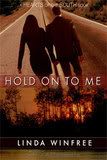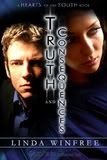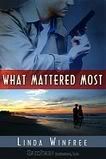Celebrating 100 Posts!! And...Today's Post: First Lines.
Whoo hoo! This is Romance Worth Killing For's 100th post!
(And to think I almost forgot! Life is currently insane!)
In celebration, I'd like to offer a contest. I've got some great books to give away, and I'll let the winner choose between several lots including authors like Nora Roberts, Sandra Brown, Elizabeth Lowell, Debbie Macomber...the list goes on.
So...anyone who posts a response to any blog between now and my next post (Wed. 9/20) will be entered into the contest.
Now...onto my post. Topic: First lines.
If you keep up with the loops, you'll have seen a heavy discussion on this topic recently. I'd like to add my two cents here - which is actually worth a little more than two sense IMUO (In My Unpublished Opinion), because it came from a class with Catherine Ryan Hyde, a multi-pubbed, best-selling author whose books have gone on to become movies.
She said: Your first line doesn't have to be a blockbuster, but it has to have traction.
What she went on to explain was that while having a killer first line is always a good thing, what you really want is an intriguing first line that pulls the reader in and makes them want to read the second line. The second line temps you further to the next. And so on, and so on...until you're so deep into the book you're invested.
Yes, you can do that with the best of the best first line, but there are downfalls to trying to get ultimate shock value in your first ten or twenty words.
I've read books with awesome first lines. But the second line paled. And the third was downright ordinary. And it was all downhill from there. I've read books where the "perfect" first line lead to a second line that began a story seemingly unconnected, and found myself befuddled and frustrated (a great way to get your readers to wall-slam your novel).
But with traction, everything connects. With traction, you engage the reader enough to pull them in, then deeper, and deeper. With traction, you're not agonizing over that "irreplaceable" first line. I could spend YEARS looking for the stellar first line and never get any writing done. Which leads me to my next point about beginnings...
Somewhere along the way (can't remember where) I learned that a good beginning can only be written after the ending is complete. Only then do you have all the plot lines smoothed, all the characters developed. Only then can you write a beginning that intrigues and foreshadows, a beginning with originality and punch.
So, if your agonizing over that first line, that first paragraph or even that first chapter, MHUS(My Humble Unpublished Suggestion) would be to get the bones down and move on, check back at the end of chapter three, chapter ten. And when you think you're finished...go back and rewrite your beginning.
(And to think I almost forgot! Life is currently insane!)
In celebration, I'd like to offer a contest. I've got some great books to give away, and I'll let the winner choose between several lots including authors like Nora Roberts, Sandra Brown, Elizabeth Lowell, Debbie Macomber...the list goes on.
So...anyone who posts a response to any blog between now and my next post (Wed. 9/20) will be entered into the contest.
Now...onto my post. Topic: First lines.
If you keep up with the loops, you'll have seen a heavy discussion on this topic recently. I'd like to add my two cents here - which is actually worth a little more than two sense IMUO (In My Unpublished Opinion), because it came from a class with Catherine Ryan Hyde, a multi-pubbed, best-selling author whose books have gone on to become movies.
She said: Your first line doesn't have to be a blockbuster, but it has to have traction.
What she went on to explain was that while having a killer first line is always a good thing, what you really want is an intriguing first line that pulls the reader in and makes them want to read the second line. The second line temps you further to the next. And so on, and so on...until you're so deep into the book you're invested.
Yes, you can do that with the best of the best first line, but there are downfalls to trying to get ultimate shock value in your first ten or twenty words.
I've read books with awesome first lines. But the second line paled. And the third was downright ordinary. And it was all downhill from there. I've read books where the "perfect" first line lead to a second line that began a story seemingly unconnected, and found myself befuddled and frustrated (a great way to get your readers to wall-slam your novel).
But with traction, everything connects. With traction, you engage the reader enough to pull them in, then deeper, and deeper. With traction, you're not agonizing over that "irreplaceable" first line. I could spend YEARS looking for the stellar first line and never get any writing done. Which leads me to my next point about beginnings...
Somewhere along the way (can't remember where) I learned that a good beginning can only be written after the ending is complete. Only then do you have all the plot lines smoothed, all the characters developed. Only then can you write a beginning that intrigues and foreshadows, a beginning with originality and punch.
So, if your agonizing over that first line, that first paragraph or even that first chapter, MHUS(My Humble Unpublished Suggestion) would be to get the bones down and move on, check back at the end of chapter three, chapter ten. And when you think you're finished...go back and rewrite your beginning.







5Comments:
Yowza!! Congrats on the 100th post. Sorry I missed it yesterday. It was such a crazy Wednesday at work, I didn't get a chance to come read. But better late than never, right? ;-)
I love that...
"...the first line has to have traction."
What a great way to think of it.
100 posts? Wow. Where have I been?
Thanks girls.
Karin, sorry I missed your contest, but I know quite a few writing friends who entered...great idea!!
Joan,
This is what I found so interesting about Karin's contest. Since each opening line was posted a week apart, you didn't have the chance to read the first few opening lines quickly-- you couldn't read them as a unit. You had to judge each line on just that one sentence, and then the second sentence was added, and then the third...
It was fascinating to see the lines go up week, by week. Because some of the lines would intrigue me into wanting more, while others didn't.
But, as the lines progressed, some of my early favorites fell by the wayside once their succeeding lines lost steam. While some of the earlier entries that hadn't interested me in the beginning began to interest me more and more with each line that went up.
The whole contest was an excellent lesson in that regards. It gave a real visual example of how strong each line in an opening needs to be to retain the reader's interest.
Congratulations on your 100th post here! Great discussion on "first lines"...I'll have to remember that, "the first line has to have traction". And I agree with you that until you've reached the end and rewritten and reshaped the book completely, you'll never find the AHA! first line anyway. :)
Post a Comment
<< Home